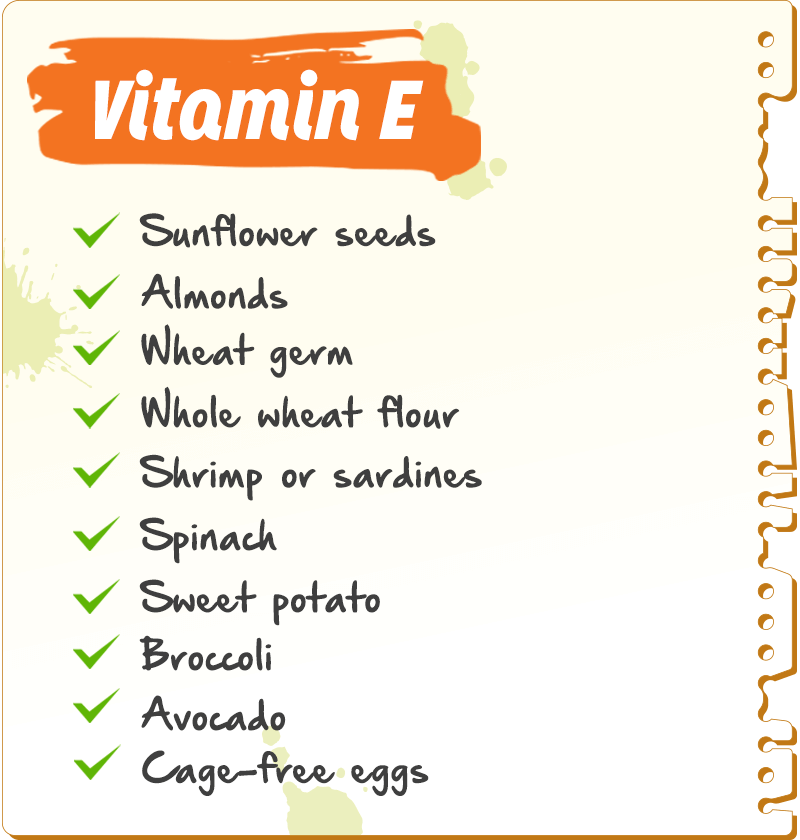Vitamin E
What we commonly refer to as vitamin E is actually a family of eight fat-soluble antioxidants consisting of tocopherols and tocotrienols. Originally called the anti-sterility factor or anti-sterility vitamin, tocopherol comes from the Greek words tokos (“offspring”) and pheros (“to bear”). Vitamin E is essential for normal reproduction, muscle development, formation of red blood cells and helping your body use vitamin K.
Fast Fact: 75-90% of Americans get too little vitamin E.
Why You Need It: Vitamin E is important for reproductive health, for both men and women, as well as cardiovascular, brain and nervous system health and function. Diets high in vitamin E show a protective effect in fibrocystic breast disease and viral infections. A vitamin E-rich diet also supports healthy skin, hair and nails, and protects against free radical damage and the normal effects of aging. Studies also show sufficient vitamin E supports normal cholesterol levels.
Vitamin E’s role as an anti-inflammatory suggests it may have a role in diabetes, arthritis and even cancer, although more research is needed. In people with mild forms of Alzheimer’s disease, it may delay cognitive decline. Vitamin E-deficient babies are at increased risk for immune and vision problems. Despite a lack of clinical evidence, vitamin E is often used to promote wound healing and reduce scarring.

× ![]()
Best Food Sources: Nuts and seeds are top sources, especially almonds, hazelnuts, pecans, walnuts, sunflower seeds. Good sources also include olive oil, and green leafy vegetables such as raw spinach and steamed broccoli. Also in avocado, wheat germ, fatty fish and seafood such as shrimp and sardines, and cage-free eggs. Processed foods are lacking in vitamin E, and a very low fat diet can put you at risk for vitamin E deficiency.
Supplement Suggestions: Look for the natural forms, which are always designated as the “d-“ form, as in d-alpha-tocopherol. Avoid the synthetic “dl-” forms. For maximum benefit, find a full-spectrum vitamin E that has both natural tocopherols and tocotrienols.
Need to Know: Your body will only absorb about 10% of the vitamin E from a supplement when you take it without fat.